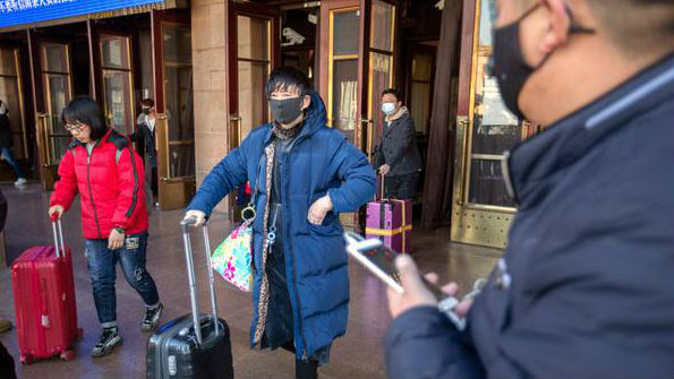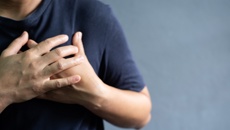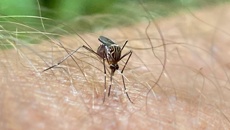
The likelihood of New Zealand getting a case of the coronavirus is "high", says Director-General of Health Dr Ashley Bloomfield
Bloomfield says he wants to make sure New Zealand is "very ready" to deal with the coronavirus outbreak.
It comes as three members of a tour group of 19 have been assessed at Rotorua Hospital out of concern they may have become infected with the deadly novel coronavirus infection.
Bloomfield, in an update at 2:30pm to media on the virus, said 98 per cent of the cases are in China at this point.
The likelihood of New Zealand getting a case is high, he said.
"The likelihood of a sustained community outbreak remains low."
Tomorrow, a National Health Coordination centre will be up and running, he said.
He said there is a "high level of awareness and concern," meaning that people are aware of what they should do when they enter the country.
He said the personal hygiene message around this virus is the same with most other viruses – making sure hands are washed and correctly coughing.
The last time NZ had boarder screening was in 2009 with Swine Flu, he said.
He said it would be "very very unusual" to use quarantine powers.
The likelihood was high, Bloomfield said, because a range of other countries have had cases.
Furthermore, people who have come into the country could be incubating the virus and it wasn't detected
Screening flights from Australia is "under active consideration," he said.
Director of Public Health Dr Caroline McElnay said if there was a case, it would be expected to see another case from someone close to the person who got it.
However, it would not get to a point where there would be a rapid increase of the number of people that got the virus.
This is because New Zealand is already getting prepared, she said.
She said there was no vaccine for the coronavirus.
Although Bloomfield said it was likely that someone in New Zealand will be infected with coronavirus, it's unlikely that anyone will die because of it.
The fatality rate of coronavirus is roughly 2 or 3 per cent - so it's unlikely someone in New Zealand will die from it.
He said the Government is working very closely with the Australian Government, where there is a "constant exchange of information".
Bloomfield said the Ministry of Health has not had direct contact with the Chinese Government.
He said he had "no reason" to question the numbers and the information coming out of China in relation to the virus.
He said the Government is "actively" looking at the use of thermo screening machines.
Public health services were earlier alerted that tour group members in Rotorua may have been exposed to someone with the coronavirus.
The virus, centred in China, has already killed more than 40 people.
The tour group arrived in Auckland on Saturday night from Australia and then travelled to Rotorua. It was feared they had made contact with someone with the virus on a previous flight to Sydney on January 20.
In a media statement following questions from the Rotorua Daily Post, the Lakes District Health Board has confirmed the group were first assessed by St John paramedics on Sunday as part of a coordinated response by health agencies.
"Three people were then taken to Rotorua Hospital's Emergency Department for further assessment. While they were found to have no symptoms that would indicate infection with the virus, a range of tests were taken for processing," the statement said
The Rotorua Daily Post asked what the nationalities were of those affected but the statement did not answer that question.
There are no confirmed cases of the virus in New Zealand.
The district health board's statement said expert advice was obtained from the Ministry of Health and Infectious Disease specialists and the three patients were able to be discharged on Sunday night and re-joined their tour group.
Toi Te Ora Public Health Medical Officer of Health Dr Neil de Wet said that public health services continued to follow up and monitor the group and were currently reviewing whether any further measures were necessary.
Symptoms of the coronavirus include fever, cough and trouble breathing and can appear anywhere from two to 14 days after exposure.
Local public health services had been working closely with the Ministry of Health to ensure appropriate protocols were followed and any risk to the public was managed appropriately, the statement said.
Lakes District Health Board chief executive Nick Saville-Wood said health board staff were aware of the need to be vigilant for signs and symptoms of people who might present to the emergency departments with flu-like symptoms.
He said health board staff were working closely with Toi Te Ora Public Health to keep health professionals across the Lakes district informed of the risk.
Take your Radio, Podcasts and Music with you









